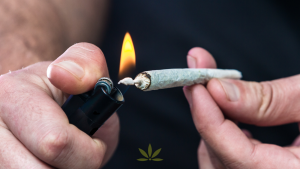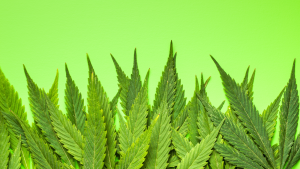Interesting Medical Benefits of THCA and Raw Cannabis
As more cannabis products become available to those who have their medical cannabis certification, patients are able to explore different cannabinoids, terpenes, and methods of consuming cannabis that makes each cannabis experience unique.
Medical cannabis patients may have seen a familiar-yet-different type of cannabinoid cropping up on labels in medical dispensaries near them: THCA or tetrahydrocannabinolic acid.
What is THCA?
Tetrahydrocannabinolic acid is a precursor to the psychoactive and intoxicating cannabinoid THC, or THC in its un-activated form. In raw cannabis flower. It is found in the trichomes of a cannabis plant, and converts to THC when exposed to heat or extreme pressure.
When patients purchase dried flower from a medical cannabis dispensary or are about to consume their own freshly cured cultivated cannabis (where permitted), the THC that will eventually lead to the feeling of being “high” is still in its unactivated form of tetrahydrocannabinolic acid. It isn’t until the cannabis is decarboxylated or exposed to heat that it becomes THC.
The unactivated cannabinoid in the flower becomes decarboxylated and into its THC form when its lit with fire to be inhaled, heated through a vaporizer for vaping, placed in an oven before making edibles (200-245ºF for 30-40 minutes in a conventional oven is a general rule of thumb), or through the many methods that processors use to make extracts and concentrates.

Tetrahydrocannabinolic acid on its own does not cause intoxication because the molecular structure of the cannabinoid does not bind to the CB1 receptors in our endocannabinoid system, which required to feel psychoactive effects.
Through decarboxylation, however, the molecular structure of THC’s acid form is changed to THC, where it can bind to the receptors within our endocannabinoid system. Thus, the acid form only makes us feel “high” when it has been converted to THC.
See our short video explainer:
The Emerging Benefits of Raw Cannabis
More research is emerging on the medicinal benefits of tetrahydrocannabinolic acid and raw cannabis.
Both THC and THCA show promise for those seeking relief from nausea, with data from studies in animal models suggesting that it may be a more potent alternative to THC in the treatment of nausea and vomiting”.
A 2017 study looked for inflammation from Irritable Bowel Syndrome (IBS), showing that its effectiveness, plus the non-intoxicating effects make this cannabinoid a more promising option than CBD for the treatment of IBS.
CBD has been a long-favored cannabinoid for seizure disorders, with THC not being the recommended route. However, studies show that tetrahydrocannabinolic acid has anti-convulsant properties making it an alternative to CBD.
Research is also supporting that THCA can act as a powerful neuroprotectant, showing promise in the treatment of Alzheimer’s Disease and related dementia conditions.
Get Your THCA Flower In You!
There are various ways you can enjoy the benefits of raw cannabis.
Juicing raw cannabis leaves is one easy way to ingest inactive THC. Raw cannabis leaves are packed full of proteins, minerals, vitamins, fibers, and antioxidants, amino acids, as well as omega-3 fatty acids and omega-6 fatty acids that possess amazing antioxidant properties. Why not toss some raw cannabis leaves in your smoothie?

There are also inactive THC products that are starting to find their way on the shelves of medical cannabis dispensaries in the form of powder. These tetrahydrocannabinolic acid powders can be added to flower to be smoked, or dabbed, which will activate them to create the psychoactive effect, but they can also be consumed in their raw form to experience the medicinal benefits of THC without the high.
Explore THCA through Medical Cannabis
When you get your medical cannabis certification with Compassionate Clinics of America, you may be able to grow your own cannabis in states where recreational cannabis growing is not permitted. Growing your own cannabis not only allows you to enjoy the beautiful buds of your harvest, but you are also left with hundreds of cannabis leaves that can be used for juicing and consuming THCA.
In addition, medical cannabis dispensaries are more concerned with stocking products for their medicinal benefits, making a dispensary the ideal place for exploring tetrahydrocannabinolic acid products. Getting your medical cannabis certification will allow you access to more products, like those with THCA such as THCA diamonds.
Compassionate Clinics of America offers residents of Arizona, Arkansas, California, Connecticut, Delaware, Georgia, Illinois, Iowa, Louisiana, Maine, Maryland, Massachusetts, Michigan, Minnesota, Missouri, Montana, Nevada, New Jersey, New York, Ohio, Oklahoma, Pennsylvania, Texas, Utah, Vermont, Virginia, & West Virginia, access to healthcare practitioners that are licensed in their state to provide medical cannabis certifications. When you become a patient of ours, you have continuous access to our award-winning patient education series, as well as access to discounts and events that are exclusive to our clinic. Contact us now to get your medical cannabis certification in your state.























